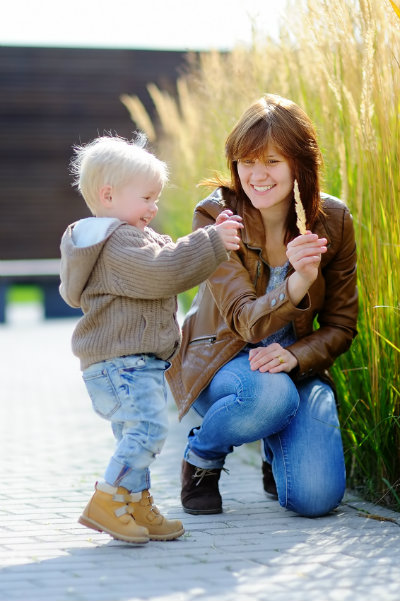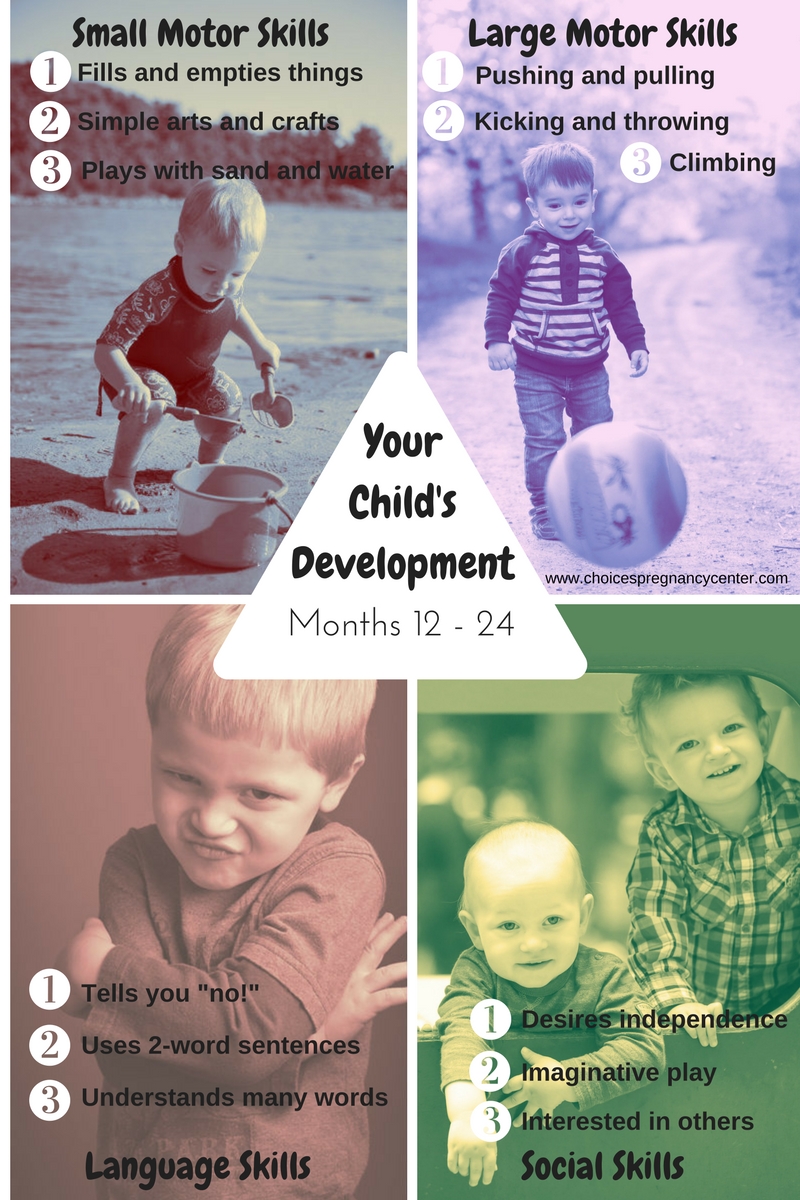 Is your child becoming a toddler? Get ready: it’s going to be an exciting ride!
Is your child becoming a toddler? Get ready: it’s going to be an exciting ride!
Your baby’s second year of life outside the womb is like a year full of Independence Days—fireworks and all. He is learning to walk confidently, eat finger foods, and express himself in short sentences. This year he’ll also test limits, ask questions, and label everything as “mine.”
Yet as independent as he tries to be, he may often feel overwhelmed or scared. Be sure you give him plenty of hugs. Other experts agree: “This can be a frustrating time for a toddler. Be ready to provide lots of comfort and reassurance.”[1]
Want to know how to handle this adventure? Read our parenting tips below.
(And don’t miss the colorful infographic at the end. It lists some of the big developmental milestones your child will reach this year.)
Mr. Toddler’s Wild Ride
This year, your child will display a whole range of emotions. He will demand your attention. He will show affection, especially if you show it to him. He will be shy around strangers, but want to be with other children. He will exhibit pride in his accomplishments. And, of course, one minute he will obey your simple instructions, but the next he will tell you “No!”
With this roller-coaster of emotions rocking his world, it’s not surprising he will sometimes behave badly. But you can be prepared to deal with problems like tantrums, biting, and defiance.
Choices Pregnancy Center offers several free parenting lessons
on dealing with tantrums, biting, and other toddler behaviors
through our Earn While You Learn program.
Call or text us today to meet for that training.
Parenting Your Toddler
Some of the best advice for parents of children at this age boils down to these three things:
- Stay calm. You’re the grown-up; don’t act like a toddler yourself. By maintaining your self-control, you show your child he can learn to be patient and self-controlled, too. (This may take a while…)
- Be patient. Let him dawdle as you walk. Accept that he’ll make a mess learning to feed himself. Let him enjoy learning by repetition.
- Play along. You are your child’s best playmate and teacher. When he sees you join in his play, he feels valued and secure. He knows you care about what matters to him. He feels loved.
Stop in at Choices and ask for our handout on toys, games, and ways to play for a toddler.
Here a few specific pointers about our clients’ common questions:
- TV and technology. Avoid letting your child spend any time in front of a screen before the age of two years. (Our post on screen time tells why.) Toddlers need real interaction; a screen can’t respond to your child.
- Potty training. Children are usually not ready to begin potty training before their second birthday. Trying to force a child to train early can be stressful for both you and the child.
- Discipline. Toddlers behave best when they live with predictable routines and know their parents have set limits. Establish a routine for key times of day—meal times, bedtime, and so forth—and include plenty of fun. (Watch for more on this topic in a future post.) Your toddler will test the limits you set, but when you stand firm on them he will relax.
- Reading. Cuddling up with you and a good book (full of rhyme, rhythm and repetition) will make your toddler’s day. He’ll learn the sound of words and that objects have names, and he’ll love just being with you.
Did you know?
If you live in the Redwood Falls area, your child can receive one FREE new book every month until he turns five. Just sign up for the Redwood Area Imagination Library. You can pick up an application at Choices Pregnancy Center and other community locations.
Twelve Months of Change
Here of some of the developments you will see in your toddler as he moves from his first birthday to his second:
Of course, there is much more you will see happening. Click on the following for more details about the kinds of changes you should see in your child’s thinking, in his speech, and in his large (gross) motor skills.
If you have any concerns about your child’s development, check with you pediatrician. Click on this link to learn more about warning signs that could indicate problems in your child’s development.
———-
There is so much we want to share with you about your child’s development
and how you can nurture his growth during this adventurous stage.
It won’t all fit here!
So please drop by and ask for our free lessons on parenting and child development.
We are here to serve parents—before, during, and after pregnancy.
______________
[1] http://day2dayparenting.com/cognitive-development-toddlers-12-24-months/

